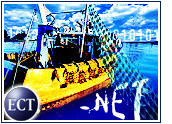
Undeniably, the Internet has changed many components of business, and public relations is no exception. The Web and e-mail have brought unprecedented speed and efficiency to the dissemination of product and company awareness.
However, amid the barrage of online pitches, high-tech PR professionals still rely on traditional communications vehicles for tangible results.
“The Internet has become the new water cooler — a destination to hear gossip and misinformation,” BlueLight.com vice president of communications Dave Karraker told the E-Commerce Times. “The speed at which such bad information can be disseminated over the Internet has made quality public relations all the more necessary.”
Rewarding Relationships
Many PR executives still consider face-to-face and telephone meetings indispensable tools for generating worthy media and analyst coverage, according to industry experts interviewed by the E-Commerce Times.
“E-mail can be a very unhealthy crutch for a lazy PR person,” said Karraker. “You can generate interest for a story using the Internet and e-mail, but to truly sell it through to actual coverage, you have to get on the phone.”
Don’t Believe in Magic
If anything, the onslaught of online PR efforts has increased the need for personalized communications, suggested Amy Kavanaugh, senior vice president of Edelman Public Relations, whose clients include Expedia (Nasdaq: EXPE), Apple (Nasdaq: AAPL) and Microsoft (Nasdaq: MSFT).
Jennifer Friedmann, management supervisor of Vollmer Public Relations, whose clients include Microsoft and Travelocity (Nasdaq: TVLY), seconded that the Internet is no silver bullet for PR.
“The response rate to any campaign depends on the quality of the contact list and pre-existing relationships,” Friedmann told the E-Commerce Times. “E-mail does not change that.”
Online Overload
In fact, with virtually no barriers to entry, the Web and e-mail inboxes have become cluttered with misdirected messages, engendering a dangerous cynicism among industry influencers, several PR professionals said.
“The amount of e-mail blasts, pitch letters, and elaborate Web sites makes it difficult to determine the leaders and innovators from those who are simply marketing savvy,” Kavanaugh told the E-Commerce Times.
Kavanaugh added that this clutter had made journalists and analysts feel overwhelmed, creating “a very challenging environment in which to communicate.”
Web Works Well
Of course, no one is proposing to eliminate the Net as a PR tool. For one thing, some companies will not accept PR pitches unless they come via e-mail.
Additionally, because the Internet is cheaper and faster, the playing field between large and small companies is leveled, according to Kavanaugh.
“Prior to the Web, identifying companies was labor intensive, often limiting coverage to those companies with the most brand awareness and the largest marketing budgets — not necessarily the company providing the most pertinent product,” said Kavanaugh.
Hybrid Publicity
Ultimately, what the Internet has done is place new demands on PR professionals, requiring them to be more knowledgeable and tech savvy, said Friedmann.
The biggest downside, according to Karraker, is “a legion of PR professionals who have never actually met the editors they attempt to pitch everyday.”
“The Internet has ushered in the acceptance of the e-mail pitch, but an editor you have met face-to-face is much more likely to turn to you as a resource than someone you have simply sent [an e-mail],” Karraker added.


















































Nice of you to run the agencies’ party line. They like to claim ‘contacts’ and all that, but they are the biggest offenders of unsolicited calls to the media. They like press tours and meetings to run up the billable hours. Most editors will honestly tell you they are a waste of time, but it strokes everyone’s ego – especially the client. Check out Soft*letter’s article on ‘The Decline and Fall of High-Tech PR’ to get the other side of that story. Email is like any other form of communication – if it’s targeted and relevant, it gets results. With ProfNet – the journalists tell you what they want. I’ve run highly effective national and international PR programs without ever meeting an editor. It’s always nice, but not really necessary. Suggest you talk to some independent practitioners for your next story to get a bit of balance.